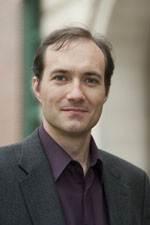![]() COLUMBUS, Ohio – “Humans aren’t vessels into which you can just pour accurate information,” states R. Kelly Garrett, lead author of the study and assistant professor of communication at Ohio State University. While it might seem like a great idea, providing instant corrections to web-surfers when they run across obviously false information on the Internet does not work fully.
COLUMBUS, Ohio – “Humans aren’t vessels into which you can just pour accurate information,” states R. Kelly Garrett, lead author of the study and assistant professor of communication at Ohio State University. While it might seem like a great idea, providing instant corrections to web-surfers when they run across obviously false information on the Internet does not work fully.
A new study suggests that this type of tool may not be a panacea for dispelling inaccurate beliefs, particularly among people who already want to believe the falsehood.

“Real-time corrections do have some positive effect, but it is mostly with people who were predisposed to reject the false claim anyway,” said Garret. “The problem with trying to correct false information is that some people want to believe it, and simply telling them it is false won’t convince them.”
In the news recently, there is an ongoing conspiracy developed that the shootings at Sandy Hooke didn’t really happen. Despite all the real data provided, those willing to believe the conspiracy persist.
More facts do not seem to change the minds of those willing to believe the original thought.
In Thunder Bay, a lack of information and updates often contributes to people believing whatever they hear around the coffee club table in their discussions.
With the Internet and Social Media currently being used to attack the Thunder Bay Police, silence on the part of the police is likely more than just investigative policy. It is likely that authorities realize pouring facts on the fire will not likely change the minds of those who are convinced in believing differently.
For example, the rumor that President Obama was not born in the United States was widely believed during the past election season, even though it was thoroughly debunked.
Well perhaps for most people. Donald Trump appears to remain convinced that President Obama was not born in the United States.
Social Media and The Internet – Fixing False Information
“The prospect of correcting falsehoods like this online before they have a chance to spread widely has obvious appeal”, Garrett said. “In fact, it has already been attempted: A team from Intel and the University of California, Berkeley, developed Dispute Finder, a plug-in for web browsers that was released in 2009 and would alert users when they opened a webpage with a disputed claim. That project has ended, but Garrett said similar efforts are under way”.
“Although the average news user hasn’t encountered real-time correction software yet, it is in the works and I suspect it will see more widespread use soon,” continued Garrett.
What does this mean for your business?
In business, often today online statements can be made that can impact your business. Forming a solid strategy before an event happens is a process that should be a part of your company’s risk management plan.
But will it work?
But will it work? In order to find out, Garrett conducted a study with Brian Weeks, a graduate student in communication at Ohio State. Their study (available here), which they will present Feb. 26 in Austin, Texas, appears in the 2013 Proceedings of the Computer Supported Cooperative Work and Social Computing conference.
Participants in the study were a diverse group of 574 adults from across the country who participated online.
The experiment was designed to see what would happen when participants read false statements copied from a “political blog” (actually text prepared by the researchers) about the issue of electronic health records.
While some of the information, collected from news stories and government sources, was correct, the researchers also inserted several false statements about who was allowed access to these records. For instance, the message falsely claimed that hospital administrators, health insurance companies and even government officials had unrestricted access to people’s electronic health records.
The participants were divided into three groups – some were presented with an immediate correction, saying that FactCheck.org, an independent fact-checking organization, had concluded this blog post contained factual errors. Inaccurate statements were italicized, enclosed in brackets and displayed in red, and a detailed correction appeared at the bottom of the page.
Others read the blog post with the errors, followed by completing an unrelated three-minute task, and then were presented with the exact same correction.
The final group was presented only with the inaccurate message during the study.
Afterwards, all participants were asked how easy or difficult it would be for several groups (including hospital administrators, government officials and others) to access electronic health records. Participants were graded based on the accuracy of their answers.
In general, those who received the immediate correction were just slightly more likely to be accurate than those who received the delayed correction. Those who received no corrections were, not surprisingly, the least accurate.
But the most interesting results came when the researchers analyzed who was influenced by each kind of correction.
The real-time correction worked well with participants who indicated at the beginning of the study that they supported electronic health records, also called EHRs.
“But for those who opposed EHRs, the effect of the immediate correction was essentially the same as if they had received no correction at all,” Garrett said.
The reason appears to be that opponents of EHRs discounted the credibility of the source of the correction, Garrett said. On the other hand, the more favorably an individual felt about EHRs, the more credible the correction was perceived to be.
Although this pattern was also evident among those who received the delayed correction, the effect was significantly weaker.
Garrett said the results of this study cast doubt on the theory that people who believe false rumors need only to be educated about the truth to change their minds.
“Correcting misperceptions is really a persuasion task. You have to convince people that, while there are competing claims, one claim is clearly more accurate.”
Garrett noted that, while instant corrections were slightly more effective than delayed corrections, the problem is that instant corrections actually increase resistance among those whose attitudes are supported by the falsehood.
“We would anticipate that systems like Dispute Finder would do little to change the beliefs of the roughly one in six Americans who, despite exhaustive news coverage and fact checking, continue to question whether President Obama was born in the U.S.,” he said.
Garrett said it may be better to find a way to deliver corrections later, when people may not be so defensive about their beliefs.







